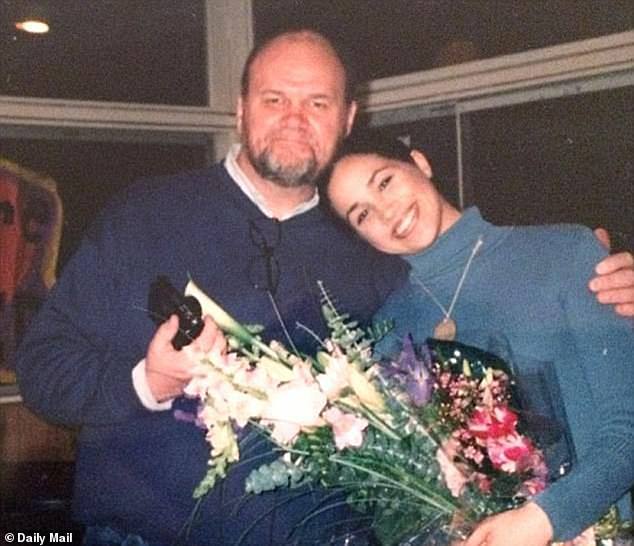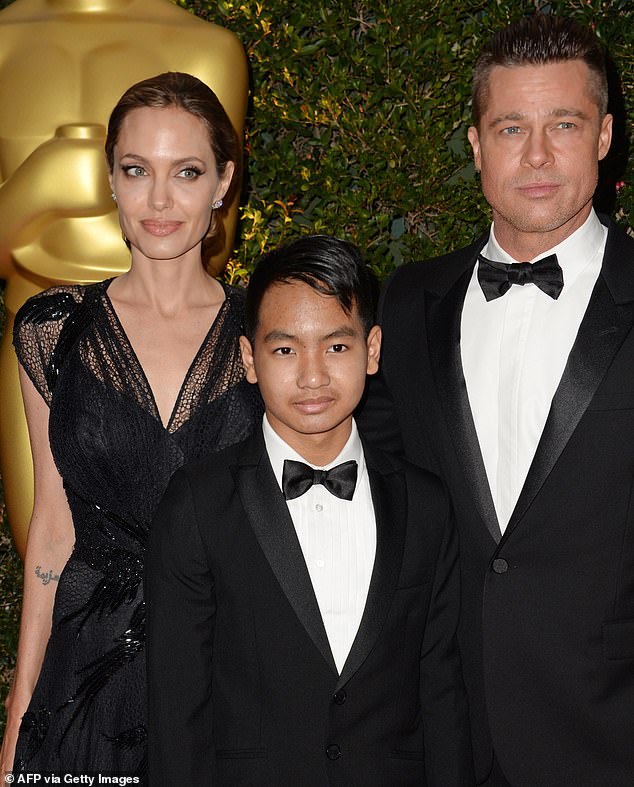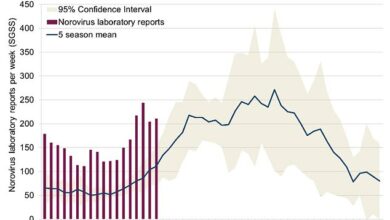Why millennials cut off their parents because they’re bad for their ‘mental health’: Psychologists explain how they’re being egged on by social media




If Olivia Sands, 37, sees her mother on the street, she ignores her. Indeed, Olivia hasn’t spoken to her mother since her wedding day — 17 years ago — despite living only ten minutes away. They have passed each other numerous times since, but spoken not a word.
‘It should have been the best day of my life,’ says Olivia, the anger still evident in her voice, ‘but she made it all about her. She and my dad had divorced a few years earlier and she refused to sit next to him on the top table. She moved her name place card and chair to a different table, and wouldn’t be in any photographs with him.
‘I sent her a message afterwards saying: “You ruined my wedding day. That’s it, I don’t want you to be part of my life any more.”
‘She didn’t reply, and we’ve had no contact since. If I see her in the street, I blank her and she ignores me.’

Estrangement isn’t uncommon among younger celebrities, Meghan Markle and singer Adele have histories of cutting contact with parents
Some will think breaking all contact with your own mother over a wedding day drama is an absurd over-reaction. Others will view it as a justified act of self-preservation.
Whichever side you fall on, Olivia is part of a growing trend.
She and her mum are among a fifth of families in the UK — that’s 12 million people — affected by ‘familial rupture’, according to a survey by the charity Stand Alone, which supports those estranged from close relatives. And in most cases, it is the younger generation that instigates the rift.
Estrangement isn’t uncommon among younger celebrities either, Adele and Meghan Markle have histories of cutting contact with parents.
Brad Pitt reportedly does not see his eldest son Maddox, 22, while Elon Musk is also estranged from his 20-year-old daughter Vivian Jenna Wilson. And there are rumours Tom Cruise’s daughter Suri hasn’t spoken to him face to face in 12 years — and she’s even dropped his surname.
Previous generations may have put up with their parents’ annoying quirks (albeit while complaining about them to friends and partners) but Millennials — those in their late 20s to early 40s — tend to cut ties altogether.
Olivia now has three children of her own who have never met their grandmother.
Only her eldest daughter, now 17, knows why — her sons, who are 12 and ten, are too young to hear the story, she believes.
She says her mother has always been controlling and prone to ‘creating dramas’ — and stands by her decision to go ‘No Contact’.
‘It hurts,’ she admits, pausing as the words seem to catch in her throat. ‘I think, no matter what’s happened, everybody wants their mum. But I’ve got to think of the bigger picture and she ruined the biggest day of my life.
‘She’s 72 now and I don’t want to have regrets when she dies, but then I don’t want that kind of toxic energy in my life either. I’m all about positive energy and believe in the law of attraction [the philosophy that a positive mindset will attract more success and happiness] and repeating affirmations such as: “I am happy, I am calm.”

Experts say millennials were raised with more emphasis on the idea of preserving mental health by keeping emotional boundaries intact
‘My mum’s a pessimist who will drag me down, and I don’t want that.’
So why are younger generations so quick to block and ignore their parents? Experts say it’s in part down to how they’ve been raised, with more emphasis on the idea of preserving mental health by keeping emotional ‘boundaries’ intact — meaning parents who overstep them are swiftly cast out.
But social media is also fuelling the rise in permanent family rifts — with hordes of armchair psychologists on hand to affirm every complaint and encourage posters to cut ties.
Indeed, there is a whole forum on the social media site Reddit devoted to younger adult children who are estranged, or are thinking about estrangement, complete with its own terminology and abbreviations: No Contact (NC), Low Contact (LC) and Very Low Contact (VLC). The hashtag #ToxicFamily has more than 1.9 billion views on TikTok.
Advice is given on how to block parents’ phone numbers and email addresses, and throw away letters without reading them to avoid ‘difficult emotions’. If anyone wavers, others are quick to stiffen their resolve.
There are also dozens of threads on the Mumsnet website discussing estrangements between adult children and their parents and offering words of support for those who have gone ‘No Contact’.
Not even the fear of regret should a parent die before the rift has been patched up seems to sway the more assertive posters, judging by comments such as ‘I’m not interested in death-bed tears’ and ‘I won’t be swooping in to pay for it [mother’s funeral] nor will I be attending it’. Clinical psychologist Dr Gurpreet Kaur believes the influence of online forums should not be underestimated.
‘Over the past decade or so, with the expansion of social media platforms, we are seeing a rise in the concept of the “self” and “I” over “we”,’ says Dr Kaur.
‘There is also a rise in mental health awareness — but pop psychology, shared in videos and memes on social media, can often over-simplify complex psychological information.’ She cites the example of ‘attachment theory’, a nuanced model of emotional development created over many years, by 20th-century psychoanalyst, John Bowlby, but often reduced nowadays to a tick-box exercise appearing to measure the quality of parenting received during childhood.
‘In some cases, this may lead to rash assessments about whether we do, or don’t, have good enough parents, and therefore their worth to us,’ continues Dr Kaur.
‘Also tolerance, especially among younger generations, for behaviours which don’t fit our immediate needs, or views, is being vastly diminished. This has both its advantages and disadvantages.’
Younger people have an increased understanding of ‘when boundaries are being crossed’, she says, yet to their parents’ generation, drastic action, like cutting ties, can often feel both self-indulgent and inflexible.
Catriona Kelly’s parents separated when she was nine years old and, once into her teenage years, her every other weekend visits to her father — who lived more than an hour away — felt burdensome.
In fact, there were times when she would refuse to go, fearing missing out on having fun with her friends at home, and then resent the feelings of guilt evoked when his messages landed, telling her how sad he was not to see her and how much he and her paternal grandmother missed her.
Aged 21, having suffered with depression for two years — possibly hereditary, she thinks, as her father had experienced it in the past — Catriona told a counsellor about the ‘emotional blackmail’ she perceived in his messages.
‘The counsellor, who was still training and in her mid-20s, told me: “If you wouldn’t accept this from a friend you don’t have to accept it from a family member,” ’ recalls Catriona. ‘That was the trigger for me completely cutting ties with my dad, blocking his phone number and email address, so he couldn’t contact me again.
‘I then got to focus on my recovery from depression without worrying about responding to any more messages from my dad.’
Catriona, a civil servant from the West Midlands, now aged 33, has had no contact with her father for 12 years now. He has continued sending her birthday cards to her mother’s address, since he doesn’t know where she lives,
She didn’t even feel compelled to call her dad, who is 66 and worked in finance, but may now be retired, when he asked her mum to pass on a message that his mother, her grandmother, had died last year.
‘He didn’t tell my mum when the funeral was and I didn’t try to find out because I didn’t want to go,’ says Catriona, unequivocally. ‘My grandma lived with us for a while when I was little, so I was pretty close to her at one time, but I hadn’t seen her for years.
‘And, to be honest, I’m scared of reconnecting with my dad now, in case he makes me feel guilty or like I’m a disappointment for not seeing him, like he did when I was younger.
‘Back then he would say: “If your mother hadn’t divorced me, I’d get to see you all the time,” but 15-year-old girls don’t spend whole weekends with their dads.’
Still Catriona acknowledges that her father has some good qualities: ‘He is a very intelligent man and, when he was in good spirits, he was very funny and engaging.
‘I just don’t think he was a very good dad, probably a little bit narcissistic, everything was on his terms, right down to me having to go to his house on my birthday weekend one year, because it fell on Father’s Day. I thought that was pretty selfish of him.’

Brad Pitt reportedly does not see his eldest son Maddox, who is now 22 years old, while Elon Musk is also estranged from his 20-year-old daughter Vivian Jenna Wilson
As with the breakdown of any significant relationship, however, there is sadness and guilt, too.
‘I feel guilty sometimes because I’m an only child and, if he gets ill, I would be the obvious choice to take care of him. But that is outweighed by the knowledge that he’s not a positive influence on my life.’
Psychotherapist Gin Lalli says there are clear differences in the way Gen Xers, now in their late 40s and 50s, deal with difficult parents compared to Millennials, the generation below.
The former tend to ‘internalise’ their own negative feelings, which isn’t healthy. Yet the more ‘knee-jerk’ reaction among Millennials — to simply sever ties — is even worse.
‘I think it’s now more common because it’s as if permission has been granted to cut off parents, with support given on social media platforms and even advice from some therapists,’ she says.
‘What was once considered taboo is now being accepted and even encouraged and we seem to have gone from one extreme — not challenging very poor parental behaviour, through a misguided sense of “respect” — to the other, when there’s plenty of space in between to find resolutions.
‘Going to the extreme of zero contact means there’s no opportunity to find a way back and I do wonder if people consider the implications of these rifts further down the line.’
Amy Eaglestone, 29, an only child, hasn’t spoken to her mother for three years and the fall-out has been very much at the forefront of her mind recently, as she is due to give birth next month.
She hasn’t told her mum that she is going to be a grandmother.
Nor did she tell her when she got married to Adam last year.
Partly because of their estrangement, the couple exchanged vows in the Bahamas with just Adam’s parents and brother present.
Her father, who separated from her mum when she was little, didn’t feel fit enough to travel such a distance.
The rupture in Amy’s relationship with her mum happened when Amy, who lives in Yorkshire, decided at the age of 26 to do a PGCE teaching qualification.
She already had a degree in education, but had spent the previous few years working in a care home. Her mother, also a carer, disagreed with the direction Amy had decided to take, firmly believing she shouldn’t ‘waste’ any more time studying but instead should work hard, keep earning and climb the care home career ladder.
‘My mum, who left school at 16, had always made it clear she thought education was a waste of time and money,’ says Amy.
‘I think it may have been a control thing, that she didn’t want me “getting ideas above my station” because she had always been happy doing menial jobs and lived quite comfortably, thanks, in part, to an inheritance from her aunt, which she invested.
‘She was also appalled that I’d taken on over £40,000 worth of debt doing my degree, even though I explained I pay less than £50 a month towards it.
‘She was worried it would affect a mortgage application, but I know it won’t.’
Amy sent her mum a text confirming that she had enrolled on the PGCE course and got one back stating that Amy was ‘going against my wishes’.
‘So I sent one back saying something along the lines of “I’ve made my decision, and I’m doing it, and I haven’t got any more to say on the matter”, recalls Amy.
‘That was my way of sort of cutting ties with her and the fact that she didn’t reply was her way of doing the same.’
Many will think this a fairly inconsequential difference of opinion — yet the pair have exchanged no messages, birthday or Christmas cards since then.
Amy is now on maternity leave from her job teaching in a further education college, and admits that her pregnancy has made her think harder about the rift with her mum.
‘Do I reach out? If so, when do I tell her? Should I wait until I’ve had the baby? But new mums are often quite emotionally fragile and I don’t know whether adding to that, if we do get back in contact, would necessarily be a good idea,’ says Amy.
‘And she’s stubborn, there is no backing down, and she’s never wrong. It’s always someone else’s fault — in fact I don’t think I’ve ever heard her apologise — so I find it hard to imagine how she will be any different now.’
Previous generations, says psychotherapist Gin Lalli, were generally more inclined to tolerate these behaviours, infuriating though they were, in order to maintain a relationship with parents.
‘It’s especially sad when the next generation comes along because you’re cutting off a grandchild from a grandparent, from whom they could learn a lot,’ says Gin.
Amy, who is expecting a baby girl, agrees that becoming a mother herself makes the estrangement extra poignant.
‘It does make me feel sad that my mum won’t know my baby,’ she says.
‘It makes me feel sad for me and for her because she is missing out. But, when I look at it from the other perspective, I’ve given her so many opportunities to accept my choices in life. I can’t risk her trying to impose her views on my daughter, like she did me.’
*All case study names have been changed




